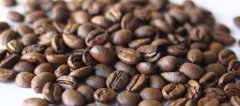Yemeni coffee culture introduces the unique flavor of mocha, the taste of mocha, the species of mocha.
Yemeni mocha is one of the oldest coffees in the world, but it is only recently that Yemeni mocha has come to be regarded as one of the best and most delicious coffees in the world. Mocha coffee is synonymous with coffee. Its unique aroma and sourness deeply attract many coffee lovers.

Mocha coffee takes its name from the Yemeni mocha, a port that is now unusable, almost filled with sand and no longer a port but a sandbar.
As a kind of single-serve coffee, Yemen mocha has a unique charm and a long history.
Yemen was known as arabia until the sixth century of the park, so coffee trees transported from them to other places were also known as arabic coffee trees.
Yemen was the first country in the world to produce coffee on a large scale as an agricultural crop. Yemeni mocha coffee today is grown and processed in much the same way it was hundreds of years ago. On most coffee farms in Yemen, coffee farmers still resist the use of artificial chemicals such as chemical fertilizers. Coffee farmers grow poplars to give coffee the shade it needs to grow. As in the past, the trees were planted on steep terraces to maximize use of less rainfall and limited land resources. More idiosyncratic, yemeni mocha beans are still shipped in a straw woven bag, unlike chemical woven bags used elsewhere. If you are a pure naturalist, Yemeni mocha will satisfy your desire to drink coffee that has been completely natural.
Mocha beans are smaller and rounder than most coffee beans and have a light green color, which makes them look more like peas. Mocha coffee beans are similar in appearance to Ethiopian Harald coffee beans in that they are small in size, high in acidity, and mixed with a strange and indescribable spicy flavor. Careful tasting can also discern a hint of chocolate, so attempts to add chocolate to coffee are a natural progression.
Mocha coffee is characterized by its fruity, distinct wine, spicy and nutty flavor, some people say that Yemen mocha is very similar to blueberry flavor, some people say that this is the unique red sea "wild flavor."
Yemeni coffee prices on the international market have not been low, mainly because Yemeni coffee is very popular in countries and regions where drinking "Turkish" coffee is popular. In Saudi Arabia, Yemeni mocha is so beloved that people there prefer to pay a premium for mocha coffee of lower quality. This particular fondness for mocha keeps mocha coffee prices high on the world coffee market.
Important Notice :
前街咖啡 FrontStreet Coffee has moved to new addredd:
FrontStreet Coffee Address: 315,Donghua East Road,GuangZhou
Tel:020 38364473
- Prev
Yemeni coffee introduction mocha coffee boutique coffee beans introduction mocha coffee with unique flavor
Mocha coffee (also known as mocha or mocha, also translated as Arabian quality coffee, English Caf Mocha, meaning chocolate coffee) is a variant of Italian latte (Caf Latt). Like the classic Italian latte, it is usually made of 1/3 espresso (Caff Espresso) and 2/3 foam, but it also adds less.
- Next

High-quality coffee beans introduce the selection of coffee cooked beans, the maintenance of coffee beans, the roasting of coffee beans
After the coffee beans are roasted, the oxidation and aroma volatilization are irreversible. So coffee lovers have always been meticulous about the preservation of beans. This article mainly analyzes the preservation of cooked beans. I hope it will be helpful to you. one。 What is raised beans (single product) freshly roasted coffee beans can not be fully released because of too much carbon dioxide, so they are tasteless. So Dou Bing
Related
- Beginners will see the "Coffee pull flower" guide!
- What is the difference between ice blog purified milk and ordinary milk coffee?
- Why is the Philippines the largest producer of crops in Liberia?
- For coffee extraction, should the fine powder be retained?
- How does extracted espresso fill pressed powder? How much strength does it take to press the powder?
- How to make jasmine cold extract coffee? Is the jasmine + latte good?
- Will this little toy really make the coffee taste better? How does Lily Drip affect coffee extraction?
- Will the action of slapping the filter cup also affect coffee extraction?
- What's the difference between powder-to-water ratio and powder-to-liquid ratio?
- What is the Ethiopian local species? What does it have to do with Heirloom native species?

